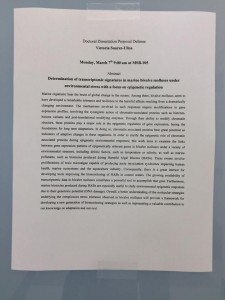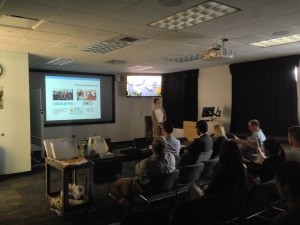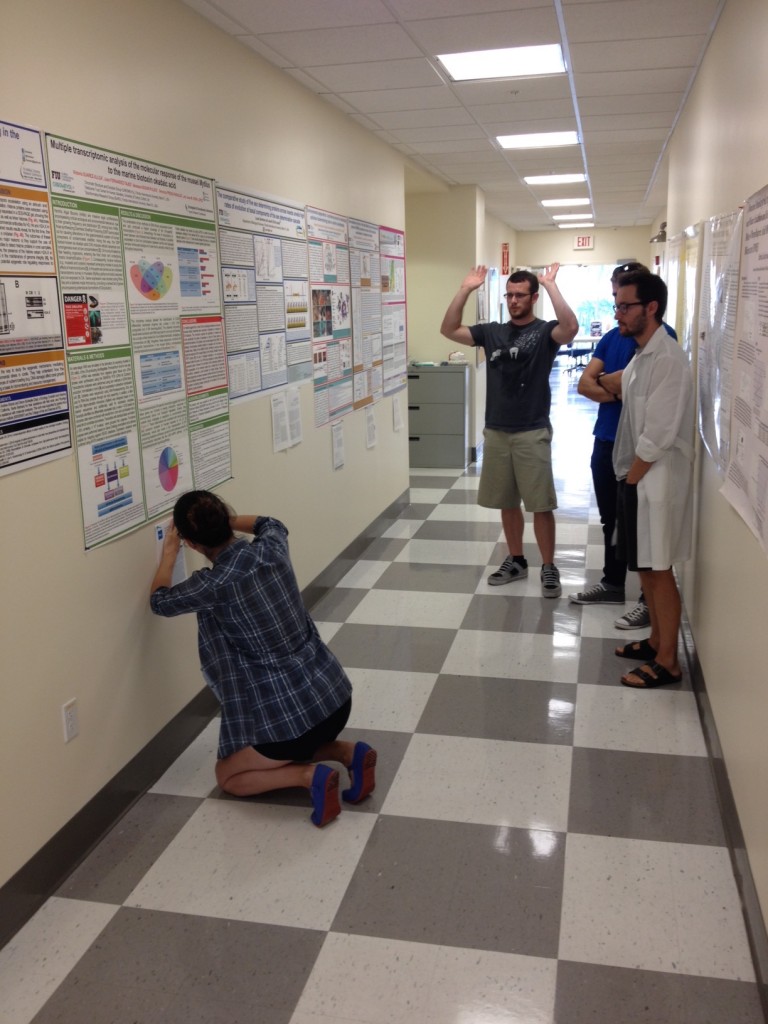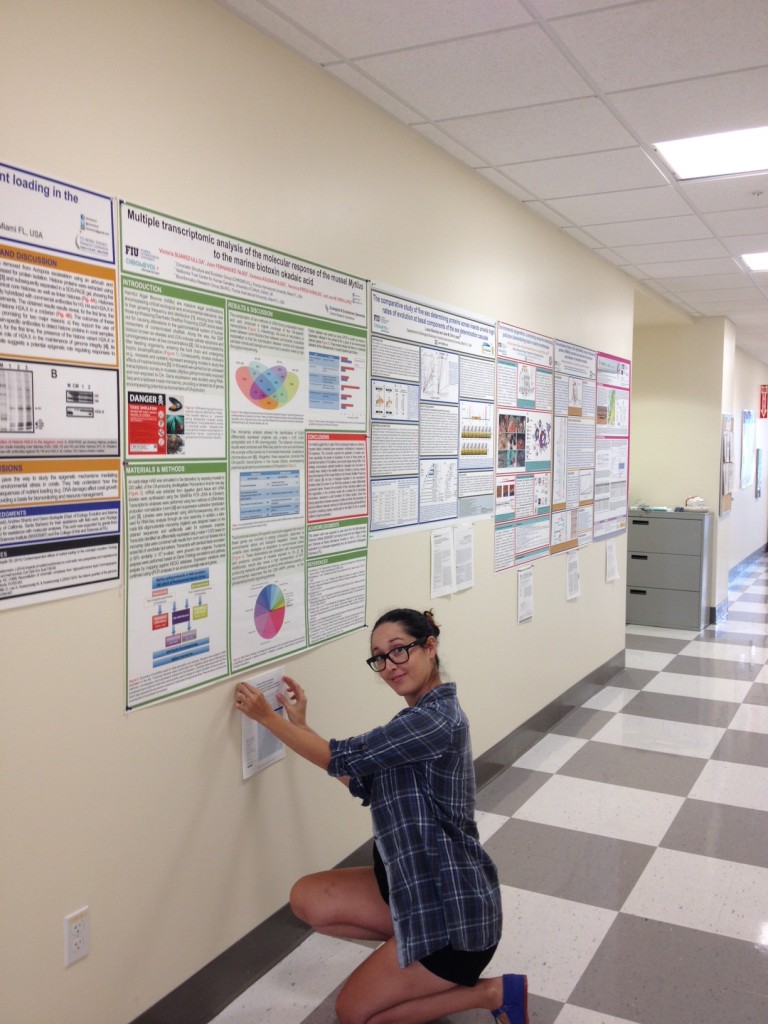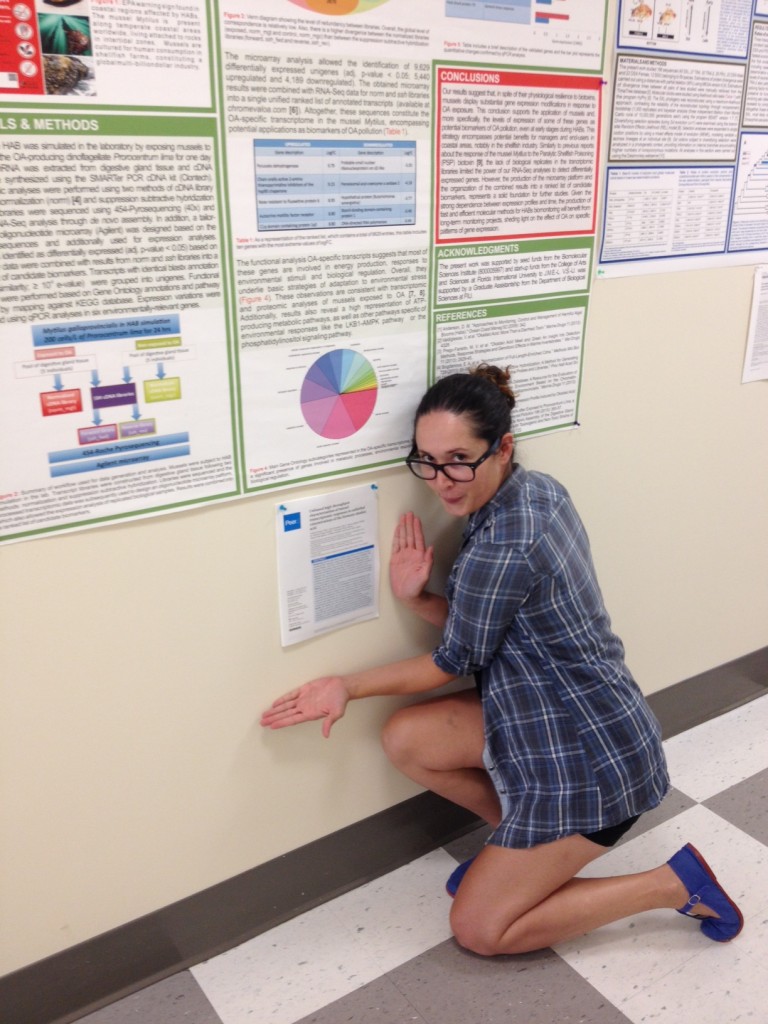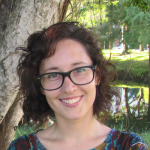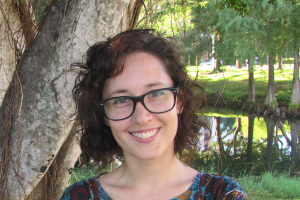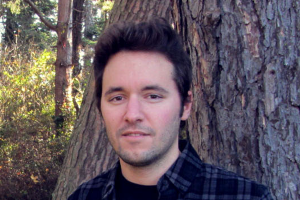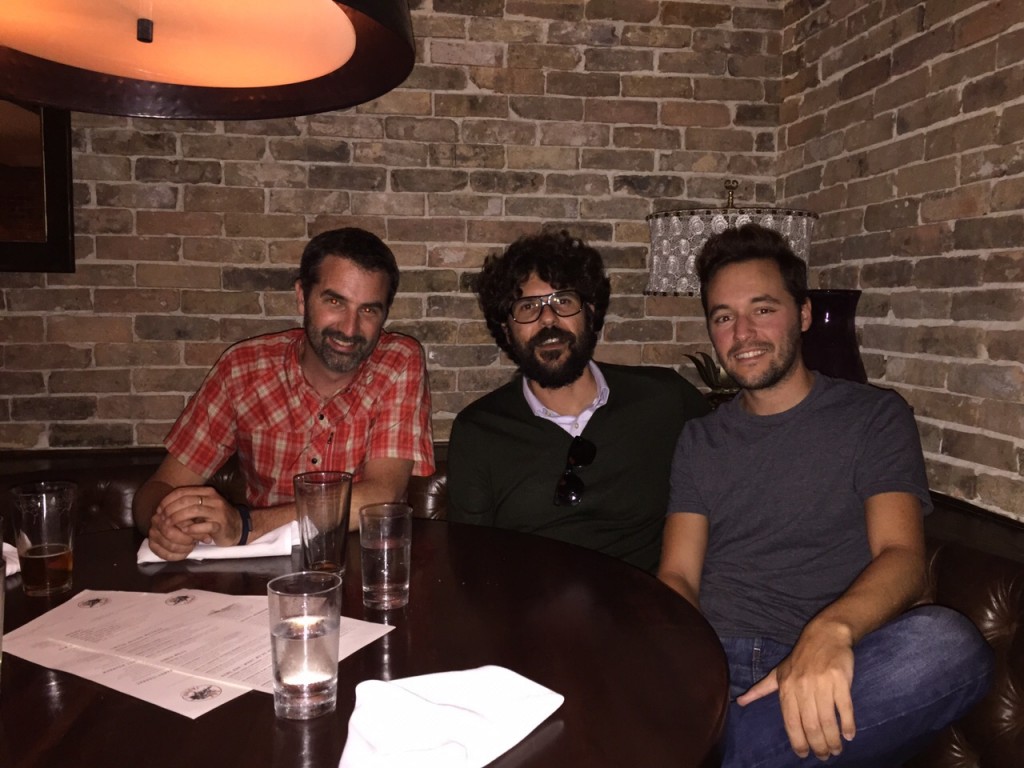Graduate Student (PhD) positions available in Dr. Eirin-Lopez’s Chromatin Structure & Evolution Lab (Department of Biological Sciences, Florida International University) starting in Fall 2016.
We are looking for enthusiastic, dynamic and independent students broadly interested in studying the interface between evolution, epigenetics and adaptation in marine organisms. Students would ideally have a B.S. degree in Biology or related discipline (academic training in biology, statistics, genetics and evolution) and must be proficient in English (both spoken and written). Candidates with additional knowledge on computer science and/or bioinformatics are encouraged to apply. Our research addresses the study of chromatin and epigenetics from different perspectives, most notably evolution, development and adaptation. To this end we use marine invertebrates as model systems in the lab, as well as a wide range of eukaryote groups in molecular evolutionary analyses. Our current projects combine elements from marine biology, toxicology, molecular biology, biochemistry, next generation sequencing, bioinformatics and molecular evolution to address environmental problems in the oceans. Our work requires good organizational and computational skills and the ability to work collaboratively as part of a team. Detailed information about our research is available at our website (chromevol.com). Follow us in Facebook (facebook.com/chromevol) and Twitter (@chromevol)
Potential research topics include (but are not limited to):
1) Characterization of epigenetic mechanisms underlying environmental responses and adaptation in marine invertebrates. This research addresses the roles of DNA methylation, histone variant modifications and other epigenetic mechanisms during responses to environmental stressors, notably by using bivalve molluscs and corals as model organisms.
2) Development of high-throughput “-omic” tools improving pollution biomonitoring in coastal areas. This topic focuses on the development of methods that can be routinely used to identify early exposure of marine organisms to genotoxic pollutants (e.g., microarrays, qPCR, proteomic analyses, etc.), specially in the case of commercially relevant shellfish, marine mammals and other megafauna.
3) Molecular evolutionary and phylogenetic analysis of chromosomal proteins in metazoans. This objective builds on the molecular evolutionary tradition of our group, studying the mechanisms governing the diversification/differentiation of gene and protein families across eukaryotes and their consequences for organismal evolution.
Related research topics are also welcome. Interested students will be required to apply to the Graduate Program in the Dept. of Biological Sciences at FIU (http://biology.fiu.edu/graduate/). Acceptance in the lab will be subject to successful application for Teaching Assistantship funds (TAs). Interested students are also strongly encouraged to apply for graduate research fellowships (e.g., National Science Foundation Graduate Research Fellowship). In order to be considered, qualified candidates must submit a statement of interest, curriculum vitae, unofficial transcripts (GPA scores), GRE scores, TOEFL scores (if applicable) and summary of research interests in a single PDF file to Dr. Eirin-Lopez (jeirinlo@fiu.edu). To receive full consideration, applications and required materials should be received as soon as possible, and never later than November 30th.
See ad with more details here.

